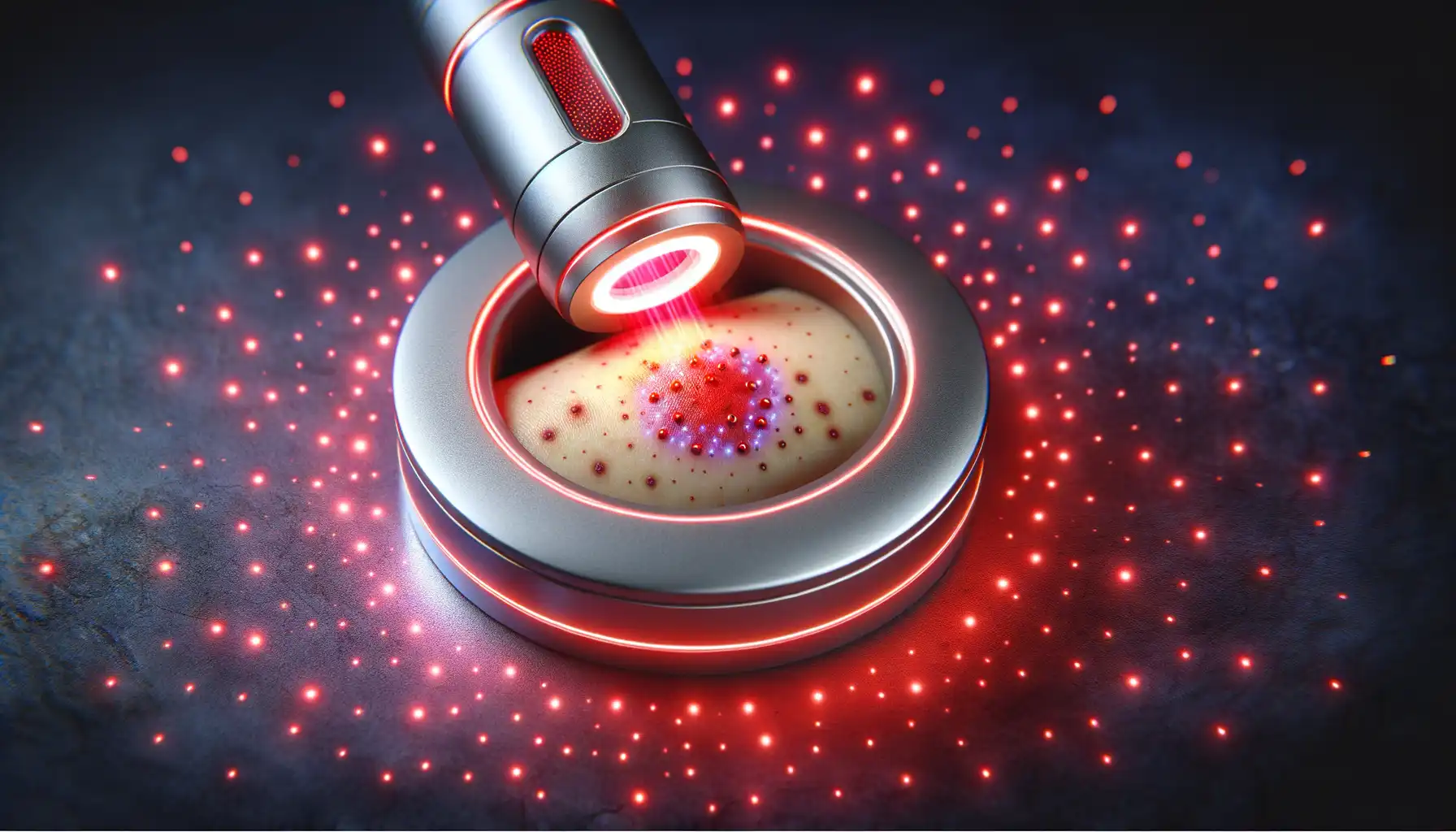Have you ever noticed your dog seeking out a warm sunbeam for a nap? That instinct for warmth goes deeper than just simple comfort. Heat can be incredibly therapeutic, and modern wellness technology is now exploring how specific types of heat, like that from an infrared sauna, might benefit our canine companions.
If you're curious about gentle, complementary ways to support your dog's overall health and well-being, you've come to the right place. We're going to explore the world of infrared sauna therapy for dogs, a fascinating approach that could help with everything from stiff joints to relaxation. We’ll look at what it is, its potential benefits, and most importantly, how to approach it safely. As with any wellness practice, this is a conversation to have with your veterinarian to see if it’s a good fit for your furry best friend.
What is Infrared Sauna Therapy?
unlike a traditional sauna that heats the air around you, an infrared sauna uses light to create heat. This heat penetrates the body more directly and deeply, without needing the same high ambient temperatures. Think of it like the difference between sitting in a hot, steamy room versus feeling the warmth of the sun on your skin.
Infrared light exists on a spectrum, and different wavelengths have different effects:
- Near-Infrared: This wavelength penetrates just below the skin's surface. It's often associated with skin health, wound healing, and cellular energy production.
- Mid-Infrared: This type of light can penetrate a bit deeper into the body’s soft tissues, where it can help expand blood vessels and improve circulation.
- Far-Infrared: The most common type used in saunas, far-infrared light penetrates the deepest. It’s known for its ability to raise the body's core temperature, which can help detoxify, relax muscles, and soothe sore joints.
For dogs, canine infrared therapy typically involves a controlled, low-temperature environment using these light waves to provide gentle, penetrating warmth.
Potential Dog Sauna Benefits: More Than Just a Warm Nap
So, what can this deep, gentle heat do for your dog? While it’s not a cure-all, many pet owners and rehabilitation specialists are seeing positive results. Here are some of the most common dog sauna benefits.
Support for Joint Stiffness and Arthritis
One of the most promising applications of infrared therapy is for dogs with arthritis or age-related joint stiffness. The deep-penetrating warmth can help:
- Increase blood flow to the joints.
- Reduce inflammation and swelling.
- Loosen stiff muscles surrounding the joints.
For a senior dog struggling to get up in the morning, a gentle infrared session could help ease them into their day with greater comfort and mobility.
improved circulation and Recovery
Just like in human athletes, improved circulation is key for muscle recovery. The mid- and far-infrared wavelengths help blood vessels expand, which allows more oxygen and nutrient-rich blood to reach tired or injured muscles. This can be especially helpful for:
- Canine athletes after a competition or intense training.
- Dogs recovering from minor sprains or strains (once the acute inflammation phase has passed).
- Supporting the body's natural healing processes.
Relaxation and Stress Reduction
Don't underestimate the power of warmth to soothe an anxious pup. The gentle, encompassing heat of an infrared sauna can be deeply relaxing. It can help calm the nervous system, making it a great complementary tool for dogs who struggle with anxiety, stress from loud noises, or just need a bit of quiet time.
Enhanced Skin and Coat Health
Better circulation doesn't just benefit muscles and joints; it also helps the skin. Increased blood flow delivers more nutrients to skin cells, which can potentially lead to a healthier, shinier coat and soothe minor skin irritations. Near-infrared light, in particular, is studied for its role in cellular repair and skin rejuvenation.
What Does the Science Say?
This is where we need to be both optimistic and cautious. While infrared therapy has been studied extensively in humans, research specifically on dogs is still in its early stages. Most of the evidence for canine infrared therapy is anecdotal or comes from canine rehabilitation practitioners who use it as part of a broader treatment plan.
The principles of how heat and light therapy affect mammalian bodies are well-established. For example, a study published on the National Institutes of Health (NIH) website discusses the biological effects of far-infrared radiation, noting its potential to improve blood flow and reduce pain. The logic follows that these benefits could extend to our dogs.
However, it's crucial to understand that it is a complementary therapy, not a standalone cure. It works best when used alongside a plan approved by your veterinarian.
Safety First: Is an Infrared Sauna Safe for Your Dog?
Absolutely nothing is more important than your dog’s safety. infrared saunas are not suitable for every dog, and you must follow strict safety protocols.
Contraindications: When to Avoid Infrared Therapy
Do NOT use an infrared sauna for your dog if they have:
- Brachycephalic (Flat-Faced) Breeds: Pugs, French Bulldogs, Boxers, and other flat-faced breeds are highly susceptible to overheating and should avoid saunas.
- Cardiac Issues: The heat can put extra strain on the heart.
- Pregnancy: It is not recommended for pregnant dogs.
- Acute Injuries or Open Wounds: Heat can increase inflammation in a fresh injury (less than 72 hours old) and introduce infection risk to open wounds.
- Puppies or Very Senior Dogs: Young puppies and frail seniors have more trouble regulating their body temperature.
Critical Safety Considerations
Even for healthy dogs, you must be extremely careful.
- Heat Sensitivity: Every dog is different. Start low and go slow.
- Dehydration: Always ensure fresh, clean water is available before and after a session.
- Constant Supervision: NEVER leave your dog unattended in a sauna. You must be present and watching them for the entire duration.
Getting Started: A Step-by-Step Guide
If you and your vet agree that infrared therapy is worth trying, here is how to introduce it safely.
- Start with Low Temperature: Set the sauna to a very mild temperature, around 85-100°F (29-38°C). The goal is gentle warmth, not intense heat.
- Keep it Short: The first few sessions should be just 3-5 minutes long. This allows your dog to get used to the feeling without any risk.
- Monitor Your Dog Closely: Watch for any signs of stress or discomfort, such as:
- Excessive panting
- Restlessness or whining
- Trying to leave the sauna
- Drooling more than usual
If you see any of these signs, end the session immediately.
- Gradually Increase Duration: If your dog is comfortable and relaxed, you can slowly increase the session time over several weeks, up to a maximum of 15-20 minutes.
- Frequency: For general wellness, 1-3 sessions per week is often sufficient. For specific issues like arthritis, your vet or rehab specialist may recommend a different frequency.
- Cool Down: After the session, let your dog relax in a cool, comfortable spot. Don't go straight from the sauna into a cold environment or strenuous activity.
At-Home Setup vs. Professional Clinics
You have two main options for exploring infrared therapy:
- At-Home Saunas: Several companies now make small, portable infrared saunas designed for pets. If you choose this route, invest in a quality product from a reputable brand and follow all safety instructions to the letter. Hygiene is vital. The sauna pad or floor should be cleaned after every use with a pet-safe cleaner to prevent bacteria buildup.
- Veterinary or Rehabilitation Clinics: Many certified canine rehabilitation centers now offer infrared therapy as part of their services. This is an excellent option because your dog will be supervised by a professional who can integrate the therapy into a complete treatment plan. The American College of Veterinary Sports Medicine and Rehabilitation is a great resource for finding qualified practitioners.
Combining Infrared Sauna Therapy with Other Treatments
Infrared therapy shines brightest when it's part of a team. Always work under the guidance of your veterinarian to create a holistic plan. It can be combined effectively with:
- Massage Therapy: A sauna session can loosen muscles, making a subsequent massage more effective.
- Acupuncture: Some practitioners find that warming the body before a session can enhance the effects of acupuncture.
- Physical Therapy: For dogs in rehabilitation, infrared heat can be a great warm-up before their exercises.
For more information on integrating different types of care, the American Veterinary Medical Association (AVMA) provides a helpful overview of complementary medicine.
The Takeaway: A Tool for Wellness, Not a Magic Bullet
Infrared sauna therapy for dogs offers a gentle, non-invasive way to support their comfort, mobility, and overall well-being. From soothing arthritic joints to promoting relaxation, the potential benefits are exciting.
However, it requires a commitment to safety, a clear understanding of its limitations, and a strong partnership with your veterinarian. By starting slow, staying observant, and putting your dog’s comfort first, you can safely explore whether this warm, healing therapy is the right addition to their wellness routine.
Ready to explore this option for your dog? Your first step should always be a conversation with your trusted veterinarian. They can help you decide if canine infrared therapy is a safe and appropriate choice for your pet's unique health needs.




